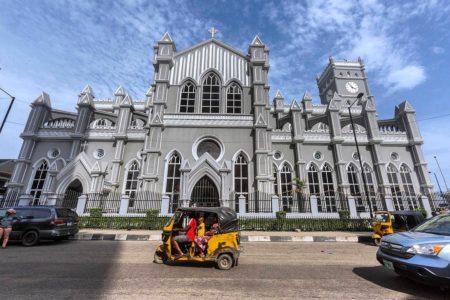Why is it very rare for Nigerian startups just like their established “company” counterparts to grow or dominate beyond Nigeria? I could easily answer that we don’t generally think beyond our country, but the question is why? And how can we overcome it?
I may have stumbled upon an answer: Hiring. A conversation with a Facebook executive crystallized it for me.
Whenever I interact with a top executive from the big 3 software companies (Facebook, Google, Microsoft) I always ask “when are you opening an engineering office in Nigeria or Africa? Because we are tired of your ‘sales office only’ approach.”
I am usually given canned answers like “we will, soon” or “we have engineering only in USA“ — a lie. This was until Chris Cox broke it down to me.
Paraphrasing him:
When we open an office in the US, we look for the best talent that can work there. That means we have a pool from the whole of the US to pick from (which is massive). Similar to when we open an engineering office in Ireland/UK — the whole of Europe is the talent pool. It would be hard to open an office where the recruiting pool is only Nigeria or Kenya.
That conversation was an ‘aha’ moment. World-class companies looking to hire people go for the best, period. Where the talent is situated is immaterial.
Nigerian startups have, in general, placed a mental border on their market and hiring of employees, which may have placed a cap on their ambition. They are building Nigerian companies rather than global companies that happen to be domiciled in Nigeria.
I don’t know why this is the case, but what I do know is that there is this mental siege I feel whenever I am in Lagos vs. London or the Bay Area. I cannot seem to understand it, but it seems once you are “in the abroad”, you see things in the context of “Africa wide” at a minimum. You see the continent as one unit that should be conquered vs. seeing at best, Nigeria when you are in Lagos.
I once said, in the US, you struggle to excel. In Nigeria, you struggle to survive.
In San Francisco, it’s heads down, planning world domination. In Lagos, it’s navigating traffic and purchasing diesel that’s top of mind.
Great benefits await local companies that think global
I think hiring outside the “Nigeria bubble” is one thing that local companies can do to jump-start thinking outside the bubble. The foreign employees join their bubble and create a bigger thought space. Diversity of thought and experience is quite important to build a formidable team — assuming you want to be the very best in a top league. Aside from the benefit of diversified thinking, broad, diversified hiring also gives companies access to new and unique talent that may not be available down the road.
I cannot help but think what would have been if Taxify started out in Nigeria. Three years later with its ~25 year old founder and 2 million+ dollars raised, it may have been planning to expand in maybe Port Harcourt vs. the real Taxify that operates in 22 cities. You might think this is theoretical but some know how much “Nigerian Ubers” have raised in trying to win Lagos ridesharing.
Maybe the fact that Taxify’s founders come from Estonia, which is a country of 1.4 million people, made them realize that being an Estonian company was not a realistic option. Or maybe having Skype and TransferWise act as Northern star Estonian startups that went global motivated them to think global from day one?
Would Konga after raising almost $100 million (process that number again) still be a Nigeria only company five years from launch if it were founded in say Nigeria and London?
Nigerian & African startup founders should think globally from day one, and early hiring should reflect that
Andela and Iroko are two companies that epitomize the ‘ideal’ Nigeria-based international companies I’m theorizing about. I’ve decided not to consider Nigerian banks and service companies like Victor Asemota’s Swifta. As for Interswitch, dem be chairman. Andela and Iroko, both of which have Nigeria as a very key component of their business and office setup, “looked” international from day one.
Don’t miss our article exploring Iroko’s evolution here.
Their hiring in their early years reflected their intention. I also think the fact that one of the founders in each of the companies had strong “outside of Nigeria” networks helped them assemble a diverse team with a more international outlook. It may be that their founding and frequency of their founders being outside Nigeria inadvertently played a key role in the early international outlook, so it may be one of the rare correlations that have become causation.
I don’t think it is easy at all. Iroko CEO, Jason Njoku, alluded to that and I think it was more difficult for him because he was the “first” of our era. I doubt it would be as difficult for another company to do the same. It is why we should have conversations.
I am actually seeing progress in this “beyond Nigeria” thinking. SureGifts is operating in Nigeria and Kenya. This new batch of Ventures Platform startups has 2 non-Nigerian startups that are contributing interesting perspectives. I am also seeing it in a FinTech startup that has gone beyond the typical local hiring: they are amazed at the talent that has been so close, yet so far.
In summary, I think Nigerian (and African) startup founders should start thinking globally from day one and their hiring should reflect that from the beginning. The earlier a company does that earlier it avoids being an organization that has been purpose built for Nigeria and would find it hard to adapt when it needs to.
If you enjoyed this article, subscribe to be notified when more like it are published.





Share: